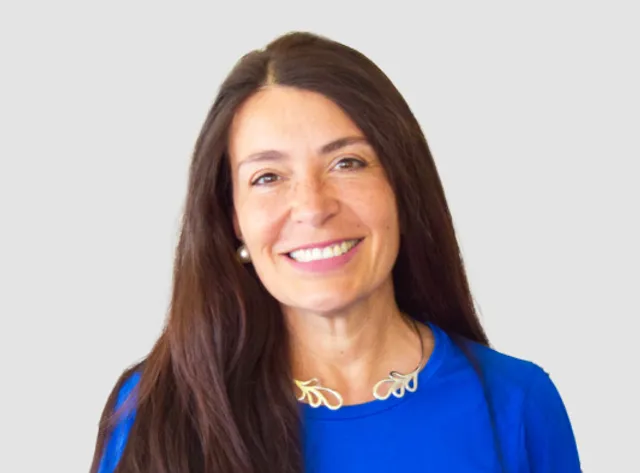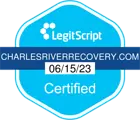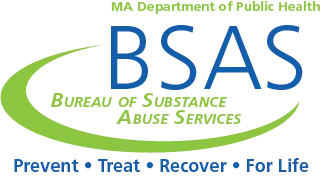Choosing the Right Rehab in Boston: Comprehensive Care for Lasting Recovery
Being home to one of the largest seaports on the East Coast, Boston is a major point of entry for both legal and illegal substances. Frequently used drugs in Massachusetts’ capital include opioids, alcohol, and cocaine. Unfortunately, Boston has been severely affected by the opioid epidemic. The opioid-related death rate in Massachusetts was twice the national rate in 2016, according to the CDC. Drug use and addiction can damage interpersonal relationships, get you into legal trouble, and lead to unemployment. Seeking treatment now will help protect you from these problems or prevent your situation from getting worse. Addiction won’t improve over time unless you receive professional treatment.
Drug and Alcohol Use/Overdose Statistics in Boston
State statistics show that 15,624 Bostonians were admitted to a drug and alcohol addiction rehab in 2017. Of those, 74.2% were male, 25.6% were female and 0.3% were transgender. Women and people of the LGBT community delay seeking treatment for addiction longer than men. The pressure to be perfect and take care of the family are often barriers to treatment for women. Worries about stigma and discrimination are the main reasons that members of the LGBT community feel held back. Roughly a third of the people who were admitted to a Boston drug or alcohol addiction treatment center in 2017 were in the 31-40 age group, making up the largest percentage. The second highest percentage was the 41-50 age group at 22.5%. Nearly 9% of people who enrolled in an addiction rehab were 18-25 years old. The older demographics outnumbered them — 18% of people who sought treatment were age 51 and older. Employment status is another concern many people have related to enrolling in a rehab center. However, 66.1% of people who enrolled in a treatment program in Boston weren’t employed. Rehab centers typically accept most insurance policies. They are willing to negotiate payment plans as well. Those who are employed don’t need to worry about losing their jobs during treatment either. Federal law protects individuals who enroll in drug and alcohol rehabs from being fired or intimidated by their employers. Heroin and alcohol were the top two primary drugs used by people who enrolled in a Boston drug and alcohol rehab in 2017. While 56.9% listed heroin as their primary drug, 29.9% reported alcohol as their primary substance. When all drugs used in the past year were taken into consideration, 62.4% had used heroin, 53.9% had used alcohol and 32.8% had used cocaine. Opioid-related deaths in Massachusetts have been increasing over the past several years. From 2012 to 2016, there was a sharp increase in deaths from opioids in Massachusetts. It decreased by 6% in 2017 compared to 2016 but is still much higher than the national rate. Many people who become addicted to opioids started off with a prescription for painkillers. At the time of an overdose or enrollment in rehab, most opioid users were no longer obtaining the drugs legally. Opioids are especially addictive because they produce feelings of pleasure and pain relief in the nervous system. Even if you took painkillers as prescribed, you could develop a dependency. When you treat substance use disorder in its earliest stages, it’s easier to kick the habit.
How to Get Help Overcoming an Addiction in Boston
Addiction causes physical changes in your brain, which makes it more difficult to seek treatment. These physical changes result in emotional and cognitive symptoms. You may feel depressed and anxious more often. Self-control becomes more difficult, especially when it comes to avoiding the drug. The hijacking of your brain’s reward system can cause you to no longer enjoy activities you once did before the addiction. Because of the seriousness of addiction’s impact on the brain, it’s often best to enter a rehab program to overcome it. Experienced professionals have the necessary knowledge to guide you through recovery. They also know how to keep you safe throughout the process. Most drugs have physical withdrawal symptoms. If your addiction is severe or involves a very dangerous substance, then your withdrawal symptoms could be far more intense and even deadly without the supervision of medical staff. Most addiction treatment programs begin with detox to get the drug out of your system and weaken your body’s dependence on the substance. Once you’ve detoxed, you’ll be ready to focus on the psychological aspect of overcoming addiction. Detox typically doesn’t take long. Depending on the type of drug being removed from your system, it could take a few days to weeks. However, this could feel like an eternity for someone in the throes of addiction. The symptoms you may experience during detox depend on what substances you’ve been taking. Opioids, including heroin, can cause sweating, muscle pain, anxiety, depression, insomnia, teary eyes, yawning, runny nose, nausea, vomiting, diarrhea, fast heart rate, blurry vision and abdominal cramps. Those who have a severe addiction to opioids may still have depression, irritability, cravings and sweating after six months of staying sober. It often takes time for your body to fully recover from a severe addiction to dangerous drugs. Each person is different, so we can’t say with certainty how long withdrawal symptoms last. What we can say with certainty is your health will improve over time while staying sober and following your treatment plan. Withdrawal symptoms from alcohol include shaking, seizures, fever, hallucinations, insomnia, anxiety and cravings. The physical symptoms usually ease up after the first week of professional detox. Some people worry about the withdrawal symptoms they may experience during detox, but the medical staff at your rehab center can provide relief. Let them know if a symptom becomes too uncomfortable. They might be able to give you medication that eases it. Exercise, meditating and eating nutritious meals also helps reduce the severity of withdrawal. Some rehab centers have an on-site gym and chef who cooks nutritious meals. They may also offer meditation therapy to supplement your addiction treatment.
Why You Should Seek Professional Treatment to Overcome Addiction
The nature of substance use disorder makes it such a dangerous condition. When you no longer experience the same high from a particular dose, your brain sends signals that make you crave larger or more frequent doses. This can cause an overdose. It also strengthens the grip the addiction has on you both physically and psychologically. By seeking professional treatment to overcome addiction, you’ll be able to take your life back. Your quality of life will improve as you stick to your treatment plan. Receiving treatment for your substance use disorder can also protect your relationships and your career. If you’ve already had a relationship damaged from your addiction, repairing the situation will typically get easier once you get sober and heal. You can also get back on track with your career goals even if you lost your job because of your addiction. Therapists at the rehab center will help you create plans for getting your life back on track and pursuing the things that are important to you. You should plan to receive aftercare in order to stay sober and committed to your better life once the initial treatment is completed. During therapy, you’ll discover the core reasons that lead you to use substances. A common contributing factor is past trauma. Not knowing how to effectively manage negative emotions increases a person’s risk of becoming addicted. Drug and alcohol rehab centers use cognitive behavioral therapy to help patients handle their emotions better and avoid destructive behaviors. You deserve to be happy again. Addiction is a health problem that can happen to anyone from any walk of life. It happens to people of all races, genders, religions, education levels and socioeconomic statuses.
Types of Drug and Alcohol Treatments for Boston Residents
Charles River Recovery, conveniently located near Boston, offers a comprehensive approach to addiction treatment. We provide specialized inpatient detox, clinical stabilization services, and aftercare planning to ensure a holistic recovery journey for our patients. At our center, patients benefit from gender-specific programs and accommodations, creating an environment optimized for successful recovery. Recognizing that many individuals grappling with addiction may also face other mental health challenges, we offer treatments for co-occurring disorders. Every aspect of Charles River Recovery, from our dedicated staff to our well-rounded treatment programs, ensures that our patients have the best chance at a sustainable recovery.
You Can Overcome Any Addiction
With the right support, such as that found at Charles River Recovery, overcoming addiction is a reachable goal. We are committed to being a cornerstone of hope and rehabilitation, guiding individuals back to a life of potential and positivity. By choosing a reputable drug and alcohol rehab like Charles River Recovery, you’re taking a significant step towards a brighter future.





